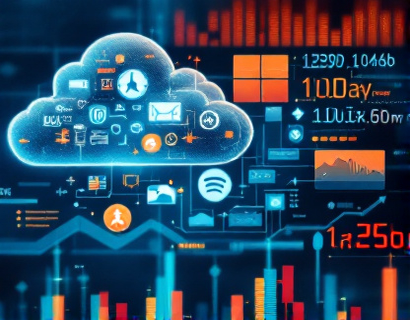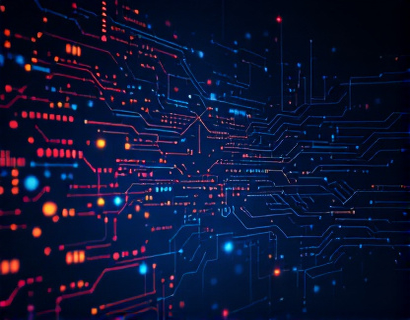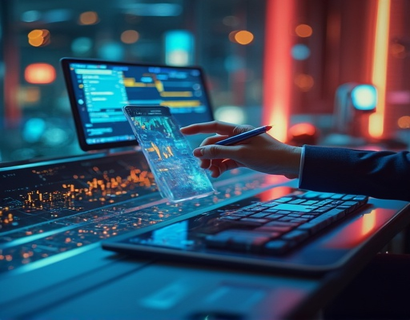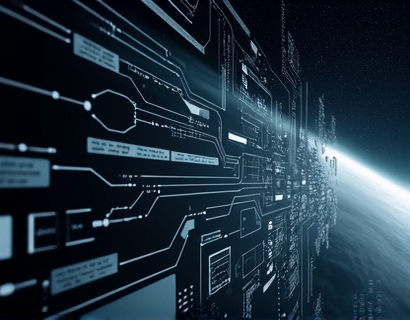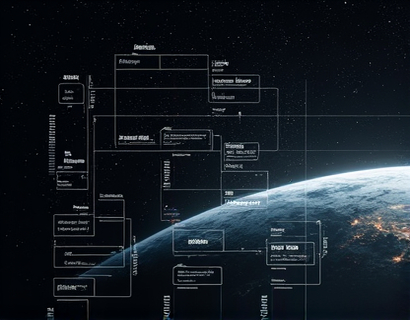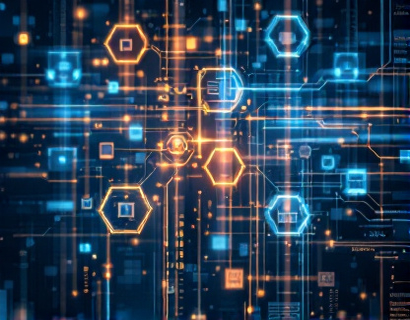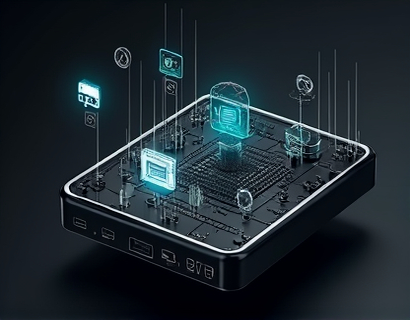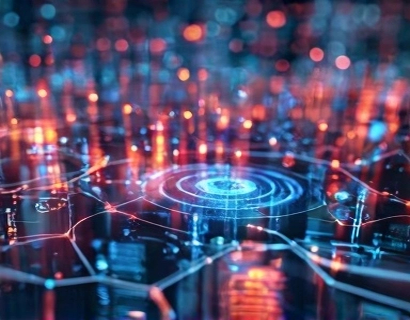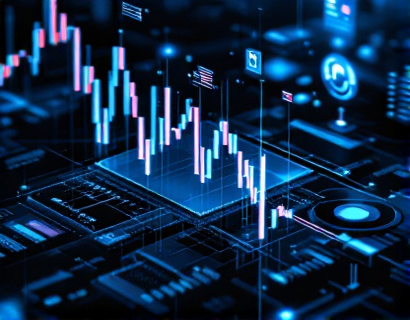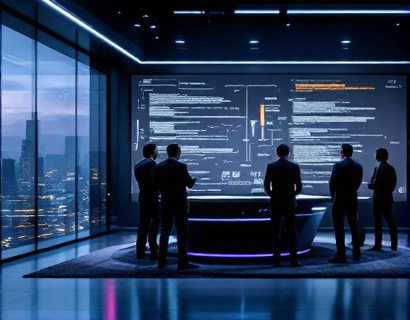Crypto and AI Synergy: Transforming Digital Engagement and Growth in the Tech Frontier
The intersection of cryptocurrency and artificial intelligence (AI) represents a revolutionary frontier in the tech industry, offering unprecedented opportunities for businesses and tech enthusiasts to enhance digital engagement and drive growth. This synergy, often referred to as BlockchainAI, is reshaping the way we interact with digital platforms, manage data, and secure transactions. By integrating blockchain's decentralized and transparent nature with AI's advanced computational capabilities, organizations can create more robust, secure, and efficient systems. This article delves into the strategic insights for businesses and tech enthusiasts looking to leverage this synergy to maximize their online presence and achieve success in the evolving crypto and AI landscape.
Understanding the Basics: Blockchain and AI
To fully appreciate the potential of BlockchainAI, it's essential to understand the fundamental concepts of both blockchain and AI. Blockchain is a distributed ledger technology that ensures data integrity and security through cryptographic hashing and consensus mechanisms. It allows for transparent, tamper-proof transactions without the need for intermediaries. On the other hand, AI involves the simulation of human intelligence processes by machines, particularly computer systems. These processes include learning (the acquisition of information and rules for using it), reasoning (using rules to reach approximate or definite conclusions), and self-correction.
When combined, blockchain and AI can create systems that are not only secure and transparent but also intelligent and adaptive. For instance, AI can be used to optimize blockchain networks by improving consensus algorithms, reducing energy consumption, and enhancing scalability. Conversely, blockchain can provide AI systems with a secure and trustworthy environment for data storage and sharing, ensuring that the data used for machine learning models is accurate and tamper-proof.
Enhancing Security through BlockchainAI
One of the most significant benefits of integrating blockchain and AI is the enhancement of security measures. Traditional systems are often vulnerable to cyber attacks due to centralized points of failure. Blockchain's decentralized nature eliminates this vulnerability, making it an ideal foundation for secure AI applications. AI can further bolster security by detecting and mitigating threats in real-time. For example, machine learning algorithms can analyze patterns in network traffic to identify and block malicious activities before they cause damage.
Smart contracts, self-executing contracts with the terms directly written into code, can also benefit from AI. AI can help in writing more efficient and secure smart contracts by identifying potential vulnerabilities and suggesting optimizations. This synergy ensures that transactions are not only secure but also executed precisely as intended, reducing the risk of errors and fraud.
Improving Data Management with BlockchainAI
Data management is a critical aspect of any digital strategy, and the combination of blockchain and AI offers significant improvements. Blockchain provides a decentralized and immutable ledger for storing data, ensuring that once data is recorded, it cannot be altered or deleted. This immutability is crucial for maintaining data integrity and trust. AI, with its advanced data processing capabilities, can analyze large datasets stored on the blockchain to extract valuable insights.
For instance, AI can be used to perform real-time analytics on blockchain data, enabling businesses to make informed decisions quickly. Additionally, AI can help in managing and optimizing data storage on the blockchain by identifying redundant data and compressing information, thus reducing storage costs and improving efficiency. This synergy ensures that data is not only secure but also accessible and usable, enhancing overall data management practices.
Personalization and User Engagement
In the digital age, personalization is key to driving user engagement and loyalty. BlockchainAI can revolutionize how businesses personalize user experiences. AI algorithms can analyze user behavior and preferences, generating personalized recommendations and content. Blockchain ensures that user data is securely stored and managed, giving users more control over their personal information. This combination fosters trust and enhances user engagement.
For example, in the context of digital marketing, AI can create highly targeted advertising campaigns based on user data stored on a blockchain. This not only improves the relevance of ads but also ensures that user privacy is maintained, as the data is encrypted and decentralized. Users are more likely to engage with content that is tailored to their interests, leading to higher conversion rates and better ROI for businesses.
Decentralized Applications and AI
Decentralized applications (dApps) are a natural fit for the BlockchainAI synergy. dApps leverage blockchain technology to provide decentralized and transparent services, and AI can enhance their functionality and user experience. AI can be integrated into dApps to offer intelligent features such as predictive analytics, natural language processing, and automated decision-making.
For instance, a decentralized finance (DeFi) platform can use AI to provide users with personalized investment advice based on market trends and historical data. This not only improves the user experience but also increases the platform's value proposition. Additionally, AI can help in automating complex processes within dApps, reducing the need for human intervention and increasing efficiency.
Supply Chain Optimization
Supply chain management is another area where BlockchainAI can drive significant improvements. The combination of blockchain's transparency and AI's predictive capabilities can optimize every step of the supply chain, from production to delivery. AI can analyze data from various sources, including sensors and IoT devices, to predict demand, optimize inventory levels, and identify potential bottlenecks.
Blockchain ensures that all transactions and movements within the supply chain are recorded transparently and immutably, reducing the risk of fraud and errors. This synergy can lead to more efficient and reliable supply chains, reducing costs and improving customer satisfaction. For example, a manufacturing company can use AI to predict maintenance needs for machinery based on data stored on the blockchain, preventing downtime and ensuring smooth operations.
Challenges and Considerations
While the potential of BlockchainAI is vast, there are several challenges and considerations that businesses and tech enthusiasts should be aware of. One of the primary challenges is the technical complexity involved in integrating blockchain and AI systems. Developing and maintaining such systems requires a high level of expertise in both areas.
Another consideration is the regulatory landscape. The crypto and AI spaces are still evolving, and regulations are being developed to address the unique challenges they present. Businesses must stay informed about regulatory changes and ensure compliance to avoid legal issues. Additionally, there are concerns about the environmental impact of blockchain, particularly proof-of-work blockchains, which consume significant energy. AI can help mitigate this by optimizing blockchain networks to reduce energy consumption.
Strategic Implementation
To successfully implement BlockchainAI, businesses should follow a strategic approach. First, conduct a thorough assessment of your current systems and identify areas where blockchain and AI can add the most value. This could be in security, data management, personalization, or supply chain optimization.
Next, build a skilled team or partner with experts who have experience in both blockchain and AI. This will ensure that the integration is done correctly and efficiently. Start with pilot projects to test the synergy and gather data on its impact. Use these insights to refine your approach and scale the implementation gradually.
Finally, focus on user education and transparency. Explain the benefits of BlockchainAI to your users and stakeholders to build trust and adoption. Provide clear and accessible information about how their data is managed and how the technology works.
Conclusion
The synergy between blockchain and AI represents a transformative force in the tech industry, offering unparalleled opportunities for businesses and tech enthusiasts to enhance digital engagement and drive growth. By leveraging the security, transparency, and intelligence of this combination, organizations can create more robust, efficient, and user-friendly systems. As the crypto and AI landscapes continue to evolve, those who embrace BlockchainAI will be well-positioned to lead the way in the digital revolution.



